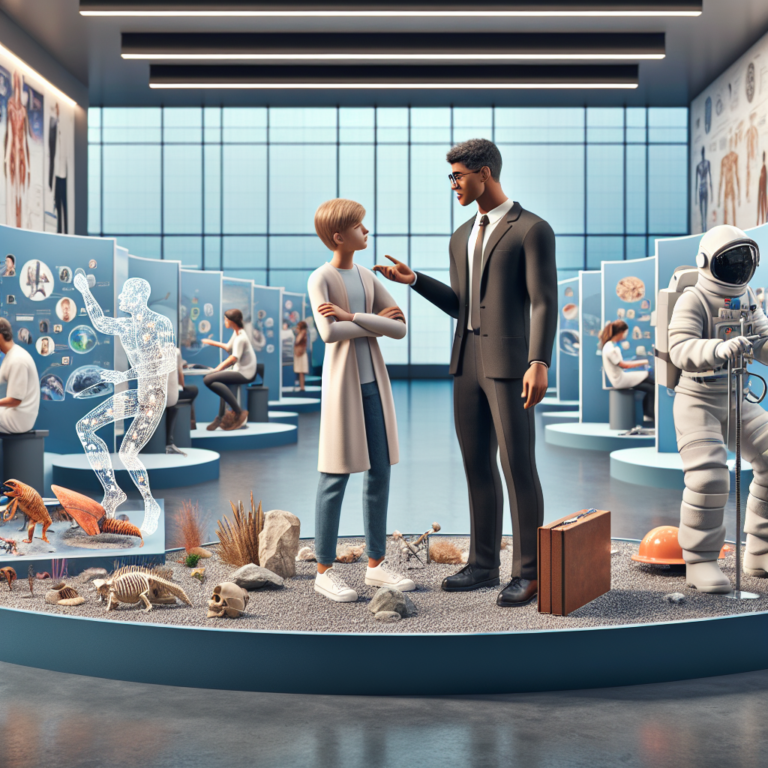Setting goals for successful career development
Setting meaningful and achievable goals is a cornerstone of successful career development. Whether you’re just starting out or are well into your professional journey, having a clear set of objectives can keep you focused, motivated, and on track to reach new heights in your career. In this article, we’ll explore the essentials of setting goals for career development, including skill building and professional development strategies that can help you succeed.
Understanding Career Development Essentials
Before we dive into the specifics of goal setting, it’s important to understand what career development really entails. It’s an ongoing process that involves evaluating your current skills, identifying areas for growth, and taking actionable steps to enhance your professional capabilities.
Why Career Development Matters
Career development isn’t just about climbing the corporate ladder; it’s about personal fulfillment and adaptability in a rapidly changing job market. By continuously developing your skills and knowledge, you’re not only increasing your value as an employee but also ensuring that you remain relevant and competitive.
The Role of Skill Building
Skill building is an integral part of career development. As industries evolve, so do the skills required to excel in them. Staying abreast of the latest trends and technologies in your field can open new opportunities and pave the way for advancement.
Setting Goals for Career Advancement
Goal setting is a powerful practice that can guide your career development efforts. But not all goals are created equal. To truly benefit from goal setting, your objectives should be specific, measurable, attainable, relevant, and time-bound (SMART).
Identifying SMART Goals
A SMART goal is one that clarifies exactly what you want to achieve and outlines a realistic plan for getting there. For example, instead of saying “I want to improve my communication skills,” a SMART goal would be “I will attend a communication skills workshop by the end of Q2 to enhance my presentation abilities.”
Long-Term vs Short-Term Goals
While long-term goals give you a direction, short-term goals act as stepping stones that lead you to your ultimate career aspirations. For instance, if your long-term goal is to become a department manager, a short-term goal might be to lead a project team successfully within the next year.
Career Development Essentials: Professional Skills
Certain professional skills are universally valued across industries and job roles. Focusing on these core competencies can provide a solid foundation for your career development.
Communication Skills
Effective communication is key in any workplace. It involves not only speaking and writing clearly but also actively listening and understanding non-verbal cues. Improving your communication can enhance teamwork, prevent misunderstandings, and make you a more persuasive and effective leader.
Leadership and Management Skills
Even if you’re not currently in a leadership position, developing leadership and management skills can prepare you for future opportunities. These skills include strategic planning, decision-making, team motivation, and conflict resolution.
Technical and Digital Proficiency
In today’s digital world, having a basic understanding of technology and digital tools is essential. Depending on your career, this might mean learning to code, becoming proficient in data analysis, or mastering industry-specific software.
Creative and Critical Thinking
The ability to think creatively and critically sets you apart in problem-solving scenarios. Cultivating these skills can help you approach challenges from new perspectives and devise innovative solutions.
Time Management and Organization
Good time management and organization skills can dramatically increase your productivity and reduce stress. Learning to prioritize tasks, manage your schedule effectively, and keep your workspace organized can have a significant impact on your career success.
Skill Building Strategies for Career Growth
Now that we’ve established the importance of professional skills, let’s look at some strategies to help you build and develop these competencies.
Formal Education and Training
Enrolling in courses, workshops, or seminars related to your career goals is a great way to gain new knowledge and qualifications. Many institutions offer evening and online classes to accommodate working professionals.
On-the-Job Learning
Seek out opportunities to learn new skills within your current job. This could involve taking on new responsibilities, shadowing a colleague, or volunteering for projects outside your usual scope of work.
Networking and Mentoring
Building a professional network and finding a mentor can provide valuable insights and advice for your career development. Attend industry events, join professional associations, and don’t be afraid to reach out to experienced individuals in your field.
Personal Projects and Hobbies
Personal projects and hobbies related to your career interests can be an enjoyable way to develop new skills. Whether it’s starting a blog, building an app, or organizing community events, these activities can showcase your initiative and creativity.
Tracking and Evaluating Your Progress
To ensure that your career development efforts are effective, it’s important to track and evaluate your progress regularly. This can help you adjust your goals and strategies as needed and celebrate your achievements along the way.
Reflecting on Milestones
Take time to reflect on the milestones you’ve reached and the skills you’ve acquired. This reflection can boost your confidence and help you identify areas that need more attention.
Seeking Feedback
Request feedback from colleagues, supervisors, and mentors to gain an external perspective on your development. Constructive criticism can be invaluable in helping you improve and move forward.
Adjusting Your Goals
As you progress in your career, your interests and circumstances may change. Don’t hesitate to adjust your goals to reflect your current situation and aspirations.
Conclusion: Embracing Career Development
In conclusion, setting goals for career development is a dynamic process that requires commitment and flexibility. By focusing on skill building, leveraging professional development opportunities, and evaluating your progress, you can create a roadmap for a fulfilling and successful career.
Remember, career development is not a sprint but a marathon. With patience, perseverance, and the right strategies in place, you can achieve your professional goals and thrive in your chosen field.










